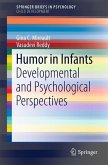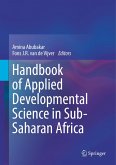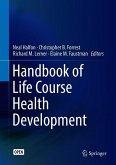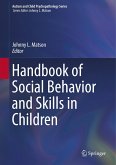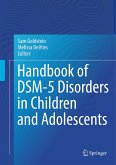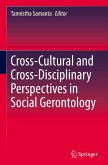This book provides an overview of fetal psychobiological research, focusing on brain and behavior, genetic and epigenetic factors affecting both short and long-term development, and technological breakthroughs in the field. These focal points intersect throughout the chapters, as in the challenges of evaluating the fetal central nervous system, the myriad impacts of maternal stressors and resiliencies, and the salience of animal studies. It also discusses specific monitoring and assessment methods, including cardiotocography, biomagnetometry, 4D ultrasound, in utero MRI, and the KANET test. Spanning assessment, identification, and pre- and postnatal intervention, the book weighs the merits of standardized evaluations and argues for more integrative research in the future.
Included in the coverage:
Effects on the fetus of maternal anxiety, depression, and stress during pregnancy.Clinical and experimental research in human fetuses and animal models. Observational research including the use of behaviors in developing tests to assess fetal health.Fetal auditory processing and implications for language development.Fetal effects of prenatal exposure to selective SRI antidepressant exposure.Structural and functional imaging of the prenatal brain.The effects of alcohol exposure on fetal development.
Fetal Development: Research on Brain and Behavior, Environmental Influences, and Emerging Technologies is an essential resource for researchers, clinicians and related professionals, as well as students in a wide range of fields such as developmental psychology, pediatric and obstetrical medicine, neuroscience, nursing, social work, and early childhood education.
Included in the coverage:
Effects on the fetus of maternal anxiety, depression, and stress during pregnancy.Clinical and experimental research in human fetuses and animal models. Observational research including the use of behaviors in developing tests to assess fetal health.Fetal auditory processing and implications for language development.Fetal effects of prenatal exposure to selective SRI antidepressant exposure.Structural and functional imaging of the prenatal brain.The effects of alcohol exposure on fetal development.
Fetal Development: Research on Brain and Behavior, Environmental Influences, and Emerging Technologies is an essential resource for researchers, clinicians and related professionals, as well as students in a wide range of fields such as developmental psychology, pediatric and obstetrical medicine, neuroscience, nursing, social work, and early childhood education.
"A compendium of 23 chapters describing in 5 sections the developments of brain and behavior in the pre- and post-natal period ... . A clearly didactic text with many illustrations ... and many references. For neonatologists, developmental psychologists, pediatricians and obstetricians. Recommended." (Pediatric Endocrinology Reviews (PER), 2017)
"Fetal Development is a collection of chapters crammed full of information that commands the reader's full attention. ... it would be a great reference tool for a pediatrician when he has a patient who smokes or works at a high stress job. ... For researchers studying epigenetics or the neurobehavioral effects of exogenous variables-this is the next book they should purchase." (R. Nicolle Carr, PsycCRITIQUES, Vol. 61 (36), September, 2016)
"This book describes fetal psychobiological research, with an emphasis on genetic and epigenetic factors, along with brain and behavior. ... This excellent book covers a wide variety of topics related to fetal development. Researchers and clinicians alike will benefit." (Gary B. Kaniuk, Doody's Book Reviews, June, 2016)
"Fetal Development is a collection of chapters crammed full of information that commands the reader's full attention. ... it would be a great reference tool for a pediatrician when he has a patient who smokes or works at a high stress job. ... For researchers studying epigenetics or the neurobehavioral effects of exogenous variables-this is the next book they should purchase." (R. Nicolle Carr, PsycCRITIQUES, Vol. 61 (36), September, 2016)
"This book describes fetal psychobiological research, with an emphasis on genetic and epigenetic factors, along with brain and behavior. ... This excellent book covers a wide variety of topics related to fetal development. Researchers and clinicians alike will benefit." (Gary B. Kaniuk, Doody's Book Reviews, June, 2016)

